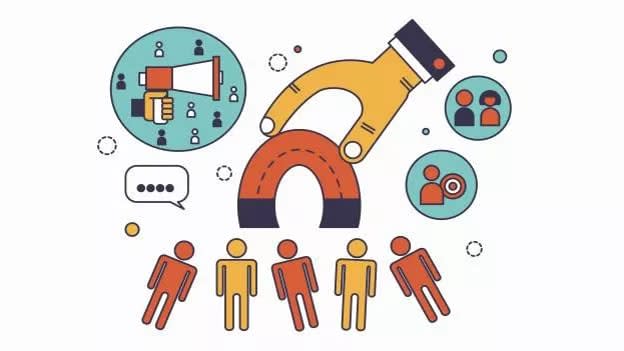L-E-A-P : Rethinking Organizational Culture for New-Age Organizations

Today’s new-age organisations are facing unprecedented uncertainties and disruptions. To be resilient and successful during the age of such disruptions, organisations need to make significant efforts to inspire and sustain innovative efforts of their workforce, especially knowledge workers – employees who have to think and innovate continuously at their work. Further, events such as the COVID19 pandemic have disrupted the way we work forever. It has led to the biggest shift in working patterns in recent times – remote work. Remote and hybrid work are going to stay with us for at least some more time. In such times, it is important that organisations brace themselves to rethink how they will engage and motivate their workforce in a work environment where only a few people will come to work and the rest (a large proportion) will work from home.
A recent study by Microsoft of 30,000 people across 31 countries has revealed that about 41 percent of the global workforce is likely to consider leaving their current employer within the next year, and that the proportion of Gen Z is even higher (54%). Commonly used organizational cultural frameworks are generic and unable to capture and explain the complex dynamics in the new-age knowledge-based organisations that are fast gaining global prominence. Organizations need to identify and develop novel approaches to maximise the potential and well-being of their employees. New models and frameworks will have to develop to provide leaders insights on how to inspire, motivate and ensure well-being of their employees.
Based on an intensive, exploratory research I propose a new framework of organizational culture, the L-E-A-P culture, to meet the demands of new-age organisations that have to compete in a knowledge-based world and have to engage employee in a world where work patterns are getting disrupted and reinvented. For organisations, it is extremely critical to embrace, instil and sustain the values of L-E-A-P: learning (L), enjoyment (E), autonomy (A) and performance (P) as the core pillars of their organisational cultures.
L – Learning: In a world that is changing so fast, learning and growth are critical for continuous improvement as well as engagement of employees who are working remotely. Degrees and seniority no longer carry the weight they did in industrial organizations. In contrast, employees want to identify with communities of expertise with strategic and technical skills than traditional, repetitive job patterns. Employees are more likely to be motivated by organisations that provide continuous opportunities and programs to advance learning through coaching, mentoring and feedback. They also expect that their opinions be heard in all organizational decisions concerning their career development, training and learning opportunities.
E – Enjoyment: For the most part, work today is done in teams. Collaborative teams, where members recognise and assign merit to members’ contributions, build trust among members contributing to enjoyable workplaces that positively affect the wellbeing of workers. As organisations decide to promote either remote or hybrid work, it is important to also design spaces, activities and events where the team members can come together and bond over things other than work. Employees seek today to be members of teams conducting enjoyable and stimulating tasks, and follow purposes and goals aligned with their work values and aspirations.
A – Autonomy: Autonomy refers to the freedom to work according to personal and responsible choices to explore alternative ways to optimize efforts and attain highest performance. In a world where face-to-face supervision may not be possible any more, employees will have to be given more freedom and will have to be trusted more. Organisations will have to be more empathetic towards the needs of their employees and will have to understand that remote work may not be easy – especially for women. The foundation of the future of work will be based on the principle that all employees should have the same opportunities to perform their job. Organisations will need to provide employees a holistic ‘value proposition’ aligned with personal and professional aspirations.
P – Performance: When learning, enjoyment and autonomy are present in balanced proportion in work, knowledge workers will be able to make a ‘L-E-A-P’ at work by maximising their work efforts and achieving their potential. In contrast, if the organizational focuses solely on performance without offering freedom and autonomy, learning and enjoyment, then knowledge workers feel constrained and stressed. Similarly, a highly challenging and low-safety environment also result in stress, while excessive safety and no challenges leads to boredom.
To be successful, new-age organisations will need to find optimal balance between autonomy, learning and enjoyment to continuously improve performance in the workplace. To achieve this balance, familiarity with the four elements of the ‘L-E-A-P’ culture detailed in this article will be helpful for organizations seeking long-term sustainability. As we move forward and emerge into a post-pandemic world, leaders and organisations will need to adopt a thoughtful approach to preparing themselves for the world of hybrid or remote work. The decisions leaders make today is going to impact their organisations in the coming years and a very important aspect of their job is to set the right values of their organisation’s culture.
















